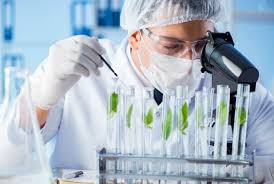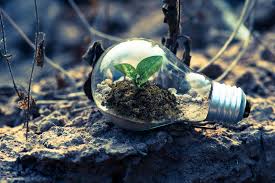To understand how biotechnology applies to environmental health, it is important to first recall the roles of environmental health in sanitation, waste management and disease control.
Handling of human excreta has for centuries been at the forefront of environmental challenges and biotechnology has been the method of choice for dealing with this challenge at a large scale.
Most sewage treatment methods are based on the principle of biotechnology. We are all aware of the different types of toilet facilities in our homes; ranging from the bucket, pit and pour flush latrines to the water cistern.
We are also all aware that the excreta we discharge is either taken to on-site treatment facilities, namely the pit, soak away and septic tanks or carried to distant treatment facilities via the sewer system.
What we probably do not appreciate is that no matter where our excreta end up, they are degraded by micro-organisms. Traditionally, these processes take place naturally without interference.
The degradation process usually takes place in stages. Some bacteria have the capability to degrade raw and complex excreta materials into smaller molecules that other microbes can convert into nutrients.
The nutrients are further converted either by nitrifying bacteria to nitrates that are either used by plant or further reduced to elemental nitrogen N2 by the denitrifiers. Likewise, organic acids are converted into methane gas by other microbes.
Degradation of other complex organic wastes such as industrial effluents (liquid waste discharged by industries) follows a similar process.
The problem, however, that this process left to nature is very slow and depending on the rate at which either domestic or industrial wastes is discharged may lead to serious contamination of sites.
The slow rate in nature could be attributed to four major factors, viz. low concentration, and slow rate of degradation, short lifespan and adaptive ecology of the microbes.
The adaptive ecology may be due to inability of microbes concerned to tolerate changing levels of some factors in the contaminated sites, e.g. oxygen or other toxicants. Biotechnology now has answers that can be employed to tackle these challenges.
Techniques now exist to increase the rate of microbe multiplication, hasten their rate of degradation and increase their lifespan. Many of these technologies involve either genetic mutation or cloning.
The former is processes of reinforcing the genes that enable a potential microbe degrade organic compounds.
Once such microbes are identified, genetic engineers are capable of identifying the genes that confer such attributes on them and study ways to boost their activities. In addition, it is also possible to transfer such genes to other microbe species to enable them do the same job.
Finally, biotechnology is also used to clone (artificial multiplication) completely new and more active microbe strains using cells from existing microbe species. Biotechnology is also being used to sort through what the genetic influences are and how the genes influence how we respond to environmental exposures.

This will help to identify genes that respond to particular environmental stresses and how they respond to make us feel the way we do when we are ill.
When this information becomes fully available, treatment of diseases will be a lot simpler because we will know what gene(s) are involved and what has happened to them to enable us become susceptible to certain environmental stimuli.
In summary, biotechnology is the application of biological and engineering methods to production processes. These methods are not completely new because they have been used for a very long time.
We have used living organisms of different kinds to solve problems without really calling it biotechnology. For instance, we ferment cassava and bake bread and other products at domestic and semi-industrial levels without really appreciating that we are practicing biotechnology.
In modern biotechnology, however, deliberate efforts are made to select living organisms of choice, alter their form and composition and decide how best to use them to achieve optimal set goals.
Biotechnology, however, may also be used for negative purposes as in the making of biological weapons of mass destruction. In spite of these negative implications, there is no doubt; biotechnology is an important development that will help many sectors of world economy move forward.
If properly applied, biotechnology also has the potential to make the world a better and healthier place to live.
Biotechnology is the use of living organisms or other biological systems and technological methods to make or modify products or processes for a specific purpose.
Read Also : Origin and History of Biotechnology and Environmental Biotechnology
Environmental biotechnology is the application of biotechnological methods to remediate (improve) contaminated environments (land, air and water) everyone needs biotechnology because it is used at all levels, from households fermentation and processing of food materials e.g. cassava, manage human excreta and other wastewaters to large industries and hospitals wastewater management and disease diagnosis and treatment respectively.
Biotechnology has a wide range of application in agriculture, medicine, pharmacy and environmental management.
Biotechnology methods offer great potential for cost-effective, quick, sustainable and environmentally friendly remediation of contaminated sites.

